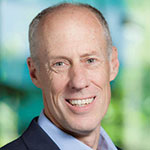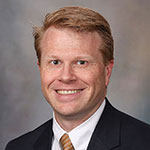The ATS Keynote Series will continue today as speakers address the effects of macrophage phenotypes and disease, and the personal and professional consequences of burnout.
Each day of ATS 2017, the series highlights state-of-the-art lectures about major discoveries in pulmonary, critical care, and sleep medicine. Two sessions are presented from 8:15 to 9 a.m. each day, when no other programming is scheduled.
Nature and Nurture of Tissue-Resident Macrophages in Health and Disease (K3)
Room 6B (Upper Level), San Diego Convention Center
Christopher K. Glass, MD, PhD, professor of medicine and cellular and molecular medicine at the University of California, San Diego, will explain the effects of non-coding genetic variation on macrophage phenotypes and disease.
Dr. Glass’ laboratory investigates transcriptional mechanisms that regulate the development and function of the macrophage, a cell that plays key roles in immunity and inflammatory diseases. Current efforts are to determine the biochemical and biological roles of sequence-specific transcription factors and their associated co-regulators at gene-specific and genome-wide scales.
Reducing Burnout and Promoting Engagement: Individual and Organizational Approaches to Physician Well-Being (K4)
Room 6 C/F (Upper Level), San Diego Convention Center
Tait D. Shanafelt, MD, chief wellness officer at Stanford Medicine, will discuss what is known regarding satisfaction and burnout among physicians.
Dr. Shanafelt is a nationally recognized expert in physician wellness, who joined Stanford Medicine after serving as director of the Program on Physician Well-being at Mayo Clinic, where he led a successful initiative to counter burnout and improve physicians’ sense of fulfillment and well-being. Dr. Shanafelt’s studies have found that as physicians suffer, so do patients: Burnout has been found to contribute to physician errors, higher mortality among hospitalized patients, and less compassionate care. It is a trend, he says, that is “eroding the soul of medicine.”


